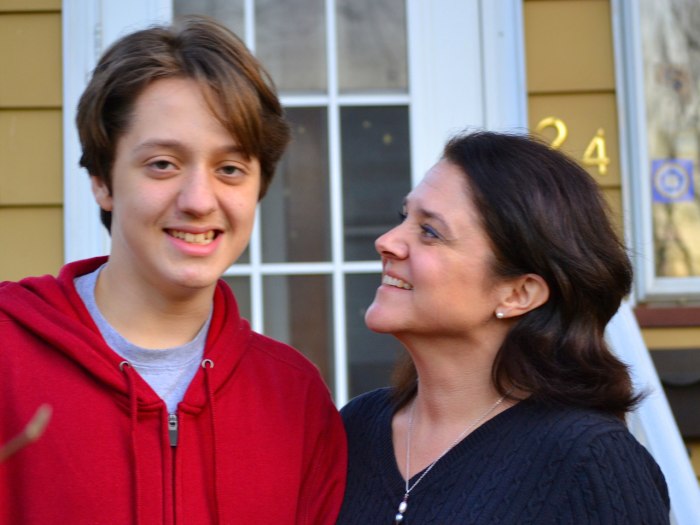Many parents face the dilemma of having their child diagnosed when their child is referred for assessment for Asperger’s. Will a label define their child’s destiny? Will people see the label instead of the child? It’s a decision which will follow their child through life, so it’s a big decision for mothers and fathers wanting the best for their children.
An Insider’s Perspective on Social Struggles and Anxiety
I would like to offer an insider’s perspective, speaking as someone who has Asperger’s, with two children also on the spectrum. In contrast to my children, who have been diagnosed in childhood, my Asperger’s was only discovered at the age of 36. Because my children were diagnosed early in life and therefore have family, friends and educators who know about and understand their neurology, I hope that their life experiences will be less traumatic than mine.
In childhood and through school I struggled socially like most aspies (people with Asperger’s), suffering severe anxiety, but because people with Asperger’s often have a calm “mask” or don’t react as a neurotypical person would under stress (for example, giggling when they are unsettled or unhappy), my anxiety was not recognised, causing significant distress. The anxiety and social struggles did not spontaneously resolve, either, but continued into adulthood.

Assistance for Asperger’s
It has only been since understanding that my brain is structured in the way that we call Asperger’s that resolution has come – having a label at the very least gave a me a word to “google” for information, and more substantially, has given me recourse to assistance of various kinds. In some countries, this takes the form of a small government stipend to cover costs related to Asperger’s, but more significantly, it usually gives an individual access to social assistance, through organisations set up to help people in these vulnerable positions. Self-awareness through diagnosis also cannot be overrated.
For children, the assistance is even more essential. The school years being the most vulnerable period of life, this is the very time when the help of a teacher aide, or at least accommodation by the school of the child’s individual needs, can reduce a child’s stress and hopefully head off anxiety and the scorn of other students, which can destroy self-esteem.
Benefits of an Asperger’s Diagnosis
The fact is that a person either has or does not have Asperger’s, no matter what label they get. The social and other difficulties will not simply go away if we ignore them. If a child doesn’t get taught coping skills or have their school on-side – and not only when behavioral issues arise – suffering of one sort or another will result, and these troubles will follow a person into adulthood.
Furthermore, people who don’t know your child will judge them by their behavior, whether or not they have a label, but more negatively if the behavior is believed to arise from naughtiness or even dullness. But if a diagnosis is made, there are many avenues for a parent to follow. Various forms of therapy designed to help the child learn social skills, or cope with sensory sensitivities, or to assist with the fine and gross motor difficulties that often accompany Asperger’s. For a child who is feeling particularly vulnerable, just the fact of having parents who understand at their back and in their corner can be a shield against anxiety and despair.
Counteracting the Negatives of an Asperger’s Label
Let’s face it, grade school is a bit of a jungle, even for neurotypical (“normal”) kids. A child with Asperger’s is doubly vulnerable in this social environment. But getting your child’s needs catered for is a sometimes difficult process, and the label is the only key to any assistance. There are so many things a parent can do to counteract the negatives of being labeled, and focusing on positive role models is a prominent one. Find famous people, either living or from history, and point them out to your child, read stories about their accomplishments. Let your child know you notice their strengths not just their weaknesses. Don’t allow them to use their diagnosis as an excuse, but do understand that sometimes it is a reason.
A label is just a word. It doesn’t define your destiny unless you let it. Take charge of the label, use it as a tool, but fill your and your child’s heads with positives. In making a decision, take into account the level of distress a child is experiencing or likely to experience due to the characteristics you see in them. And do make sure you are gauging this accurately, as these children’s distress can easily be hidden, even from loving parents.
Finally, this is not a decision you need to make immediately. If you are not comfortable or convinced, put the decision aside and wait and observe.